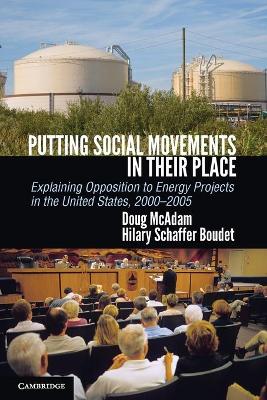Cambridge Studies in Contentious Politics
2 total works
The field of social movement studies has expanded dramatically over the past three decades. But as it has done so, its focus has become increasingly narrow and 'movement-centric'. When combined with the tendency to select successful struggles for study, the conceptual and methodological conventions of the field conduce to a decidedly Ptolemaic view of social movements: one that exaggerates the frequency and causal significance of movements as a form of politics. This book reports the results of a comparative study, not of movements, but of communities earmarked for environmentally risky energy projects. In stark contrast to the central thrust of the social movement literature, the authors find that the overall level of emergent opposition to the projects has been very low, and they seek to explain that variation and the impact, if any, it had on the ultimate fate of the proposed projects.
Silence and Voice in the Study of Contentious Politics
by Ronald R. Aminzade, Jack A. Goldstone, Doug McAdam, Elizabeth J. Perry, William Hamilton Sewell, Jr., Sidney G Tarrow, and Charles Tilley
Published 17 September 2001
The aim of this book is to highlight and begin to give 'voice' to some of the notable 'silences' evident in recent years in the study of contentious politics. The seven co-authors take up seven specific topics in the volume: the relationship between emotions and contention; temporality in the study of contention; the spatial dimensions of contention; leadership in contention; the role of threat in contention; religion and contention; and contention in the context of demographic and life-course processes. The seven spent three years involved in an ongoing project designed to take stock, and attempt a partial synthesis, of various literatures that have grown up around the study of non-routine or contentious politics. As such, it is likely to be viewed as a groundbreaking volume that not only undermines conventional disciplinary understanding of contentious politics, but also lays out a number of provocative new research agendas.

